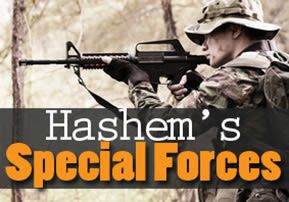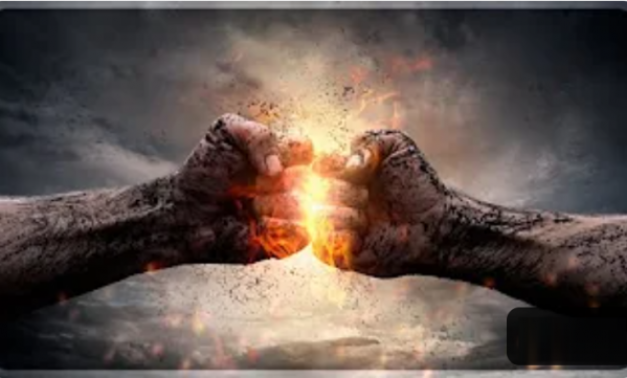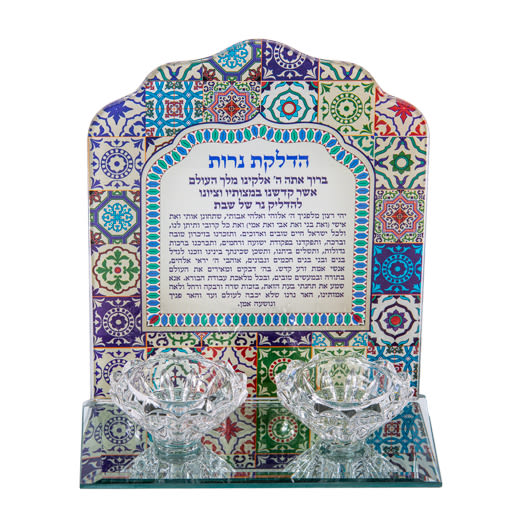The Jewish people continue to find themselves the midst of tremendous trials. From mounting political pressure from America and the newly inaugurated President Barack Obama, to Iran and Hizbullah, to the lack of rain in Israel, the pressure is mounting. And that is just the land of Israel – everywhere, Jews face terrible sicknesses r”l, the “shidduch crisis” and skyrocketing numbers of divorces, children at risk, people losing their jobs and wealth, and more. No family has been spared. On top of this, anti-Semitism is skyrocketing around the world, to levels not seen since pre-World War II.
In response, we cry from the depths of our souls: “Ad mosai – hinachem al avdecha!” – “Until when??? Have mercy on your servant!” (Tehillim 90). We talk to Hashem in hisbodedus, we give tzedakah, we do more and more mitzvos, we work and work and work – and it feels like it is falling on deaf ears. The pressure continues. We feel ourselves breaking, coming apart at the seams – far past the boiling point, the water is pushing on the lid, threatening to completely boil over. Deep inside, we ask: “Eich? How? How could this be? Where is Hashem when I need Him???”
What is the emes, the deep truth, of the situation? Hashem is carrying us. In fact, Hashem is ALWAYS carrying us – even when we think we are the one walking on our own, making the decisions, life is good – truly, even then Hashem is carrying us. How many terrible bacteria and deadly cells are in our systems, that Hashem destroys for us? Each part of our body is a complete miracle – if any tiny part of it doesn’t function correctly, boy do we know about it. Just think about the pain of an ingrown nail on your pinkie, or having flat-foot. All the more so, all the occurrences every day, the people we meet, our jobs, our families, just driving to and from work safely…Hashem is carrying us always. It’s just that there are particular times in our lives where we realize just how little our efforts and our intentions really accomplish on their own, and recognize the full extent to which Hashem truly does carry us.
And why all the terrible suffering? Every Jew in every time is not only a servant of Hashem, but serves in Hashem’s “army” so to speak. But our generation is a special generation, with a special task. We are the generation before the coming of Moshiach, a time prophesied to have tremendous suffering and tests of faith. Rabbi Brody says in the Trail to Tranquility – “Certain souls are sent down to this world, and Hashem puts an enormous amount of pressure on them…they are Hashem’s special forces.” This applies to our entire generation – we are all Hashem’s “special forces.”
Just as in a real army, only the special, elite units get the really tough tasks, the “impossible missions.” But what happens when these soldiers go into battle? When the enemy is attacking them – do they run and cower in fear? Absolutely not – the face the situation head-on, with strength and courage. Why? Because they know who they are.
Soldiers in the elite unit know that they were called to this difficult task because they have the capability to overcome it. When the going gets tough, they get tougher, because that is what they were trained for. They take pride in being assigned a difficult mission, and never give up on themselves.
We are no different, except that we don’t always remember that we’re in the special forces. We get into the heat of battle, but don’t realize our strengths, our training, our mission. Instead of running from a difficult ordeal, we should thank Hashem and take pride in our difficult assignment, for it is an honor and a privilege to serve no different than serving in the IDF. We should think to ourselves: “What an elite unit I am in, that You gave me such a difficult assignment! Wow, wow, wow – please give me the ability to succeed in my mission! Thank you for trusting me with it!”
Even more, real armies always have extensive briefings in order to prepare the troops before the mission, and learn what worked and what didn’t after the mission. We should be no different. Every morning, we need to take a moment to think about what our task for that day is, and ask Hashem to help us accomplish it successfully. We should stand tall and salute ourselves as members of Hashem’s special forces so that we can face our day’s work with happiness and strength. And in the evening before we go to sleep, we review our day: did we accomplish the goals we set for ourselves in the morning? Where did we succeed, and where could we have done better?
It is also important to remember that just as an army provides for the basic necessities of the soldiers – not as payment for their work but in order that they should have the ability to do it – so too, Hashem. We don’t receive our food, shelter, possessions, etc. that they should be “ours” any more than a tank belongs to a tank crewman. It is not a tit-for-tat situation, where we do what Hashem wants, and we receive payment in the form of material items. We receive the material items we need to complete our missions. We can ask for what we need to complete our missions (and perhaps re-evaluate our jobs if the resources and task don’t match up), and we must be sustained in order to have the strength to do the work. But to request or desire anything more is like the tank crewman desiring to own the tank or the army base – it’s absurd.
Soldiers have uniforms and special badges of honor, and so do we. For men, it is their kippah and tzitzis, and for women, our modest dress and head covering once we’re married. Could you imagine a soldier going into the field wearing a bathing suit, or without his gear? No soldier would ever come to base without his uniform! Neither should we. We should also wear our uniforms proudly, as a reminder not only to the world, but also to ourselves, of who we are.
Finally, it is important to remember that even the most experienced soldier must lean on Hashem and ask Him for success, while knowing what his abilities and strengths are. Lefum tza’ara agra – in accordance with the effort (not the result!) is the reward. We must put in our efforts and know who we are, believing in ourselves and facing difficult assignments with courage and resolve just like a special forces soldier, while recognizing that ultimately, Hashem is carrying us, and the outcome of our efforts are not guaranteed but ordained by Hashem.
Private Batya Rosen, Special Forces – reporting for duty.














Tell us what you think!
Thank you for your comment!
It will be published after approval by the Editor.